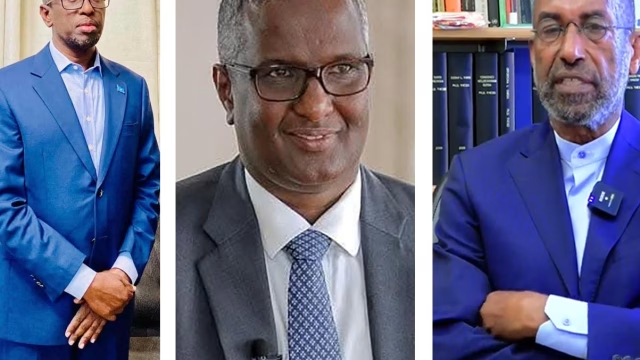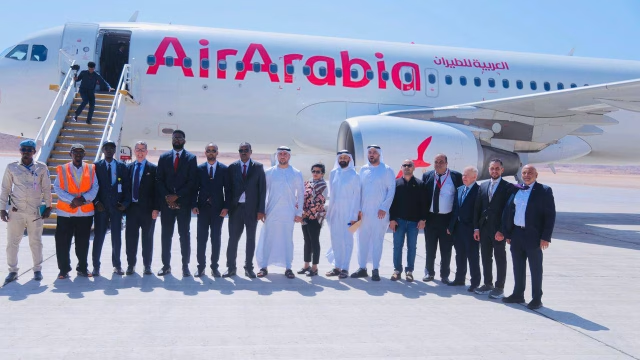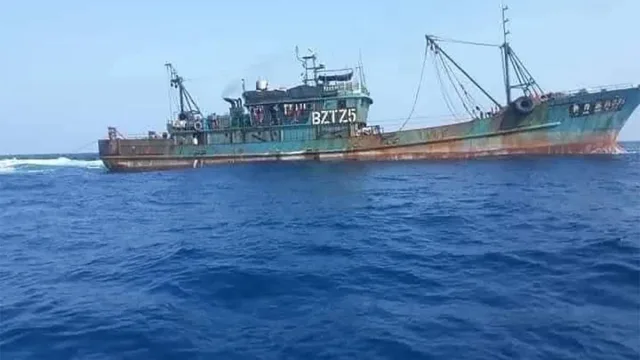The new Somali cabinet has been sworn in. Right at the top of the list of…

The new Somali cabinet has been sworn in. Right at the top of the list of tasks facing the new cabinet is the implementation of 2016 vision which one of its objectives states a national election should be held across the country. But prospects of success are overshadowed due to the period of time left.
Following weeks of political bickering, the Federal parliament on Monday overwhelmingly approved the new cabinet composed of 66-ministers with most of them new comers who lived abroad for decades and lacking political experience.
Despite Prime Minister Omar Abdirashid Sharmarke’s experience – he has served as Somalia’s Prime Minister from 2009 – 2010 and been his country’s ambassador to U.S – most analysts and commentators agree that Sharmarke’s position is fraught with difficulties with the tasks needed to be accomplished and with less than 18 months left for the government term.
Some of the significant tasks the government has to meet are;
- Completing a Vision 2016 framework to conduct constitutional review and implementation; reconciliation and completion of the federal system, as well as preparation of National Elections by 2016
- Creating the enabling conditions for robust private-sector growth, expansion of industry and meaningful employment opportunities
- Implementing a national poverty reduction strategy focused on strengthening access to health care, education and employment, as well as promoting financial inclusion and developing public infrastructure
- Providing education, employment and engagement opportunities for youth
Security
Despite all its goodwill, the government is still a provisional government, with de facto control only over Mogadishu and parts of the South, and dependent on foreign troops to keep its enemies at bay. Al-Shabaab is down but not out. It controls, or at least is able to operate at will in, huge swaths of south and central Somalia, and still able to hit high-profile targets in Mogadishu’s heavily fortified areas, including the national courts, the UN compound, the Turkish embassy, and popular gathering places.
In order free and fair elections to be hold all over the country peacefully, the government should ensure all the territories are under its control.
Though al-Shabaab has lost strategic towns and regions to the Somali government forces and African Union peacekeepers, the group still controls large rural areas in Southern and Central Somalia.
The government cannot stabilise Somalia through military measures alone—it cannot impose a peace—it must recognise its limitations and accept that stability is only possible through a nationwide process of negotiation, power sharing with other political forces and improved governance.
Review of Constitution and Federalism implementation
A new Provisional constitution was passed in 2012 that paved way for the elections that President Hassan Sheikh Mohamoud was voted to lead the country for four years.
However, many commentators believe that the provisional constitution has been the centre of political disputes in recent years. For instance, two Prime ministers have so far been ousted from office following disagreement with the president on cabinet reshuffling.
The semi-autonomous region of Puntland accused the federal government on several occasions of undermining the provisional constitutions.
Arguably the most intractable issue is the question of federalism. Despite five years of work, the committee drafting Somalia’s new constitution was unable to reconcile different positions on the devolution of power and left many provisions on federalism vague or unaddressed in the provisional constitution that forms the basic law of the SFG. Put simplistically, serious disagreements remain between those who would like to see Somalia become a strong unitary state—one that can stand up to neighbors, such as Ethiopia, that have long meddled in its affairs—and those that fear a centralised government would be dominated by a single clan, or group of clans—as it was during the Siad Barre era—and would then deny them their fair share of resources.
Dealing with Corruption
At the root of Somalia’s problems is a deep lack of accountability. Strong internal controls and accountability mechanisms enable anti-corruption agencies to carry out their missions and avoid internal abuses that can damage their credibility. Useful procedures include those that focus on recruitment, training, and active management of staff integrity, as well as ensuring the highest ethical standards by agency leadership.
In 2013, Somalia once again dominated world news headlines following a UN report that accused individuals in Mohamud’s government used the Somali central bank as a personal “slush fund”, with an average 80 percent of withdrawals made for private purposes. This, however, led to International donors to stop the direct cash given to the Somali government.

Surprisingly, the then governor of Somalia Central bank was part of the cabinet members who were sworn in and will serve as the country’s Foreign affairs minister.
The problem is not that the legal framework for accountability does not exist. A host of institutional changes have created bodies to fight corruption, but none of them was able to execute its duties. However, the formal structures set up to build integrity largely lack the mandate, powers and resources to combat graft. Public sector salaries are low (despite significant increases in recent years); the civil service is not subject to regulations to prevent nepotism, cronyism, and patronage; and at the local level, institutions do not provide sufficient incentives for participation in decision-making. Within public bodies, information and opportunity are often jealously guarded, which can make collaboration and cooperation very difficult.
Subsidies, tax exemptions, public procurement of goods and services, soft credits, extra-budgetary funds under the control of politicians—all are elements of the various ways in which governments manage public resources.
Governments collect taxes, tap the capital markets to raise money, receive foreign aid and develop mechanisms to allocate these resources to satisfy a multiplicity of needs. Some countries do this in ways that are relatively transparent and make efforts to ensure that resources will be used in the public interest. The more open and transparent the process, the less opportunity it will provide for malfeasance and abuse.
Most ordinary Somalis explain that they just want stability and economic prosperity to return to the country which is still reeling from the two decades of civil war.
The new government faces many formidable challenges. Effectively meeting them will test not only the commitment of individual political leaders, but also the quality and sustainability of this new technocrat government as a viable entity in itself. Its success, one hopes, will also set a much needed political benchmark of note amongst political leaders which will be welcomed by the entire Somali and international community.
Ayub Abdirahman
Horseed Media
Follow the writer on twitter: https://twitter.com/AbdirahmanAyub


